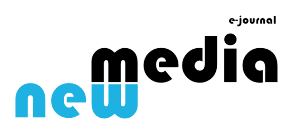HALKLA İLİŞKİLER BAĞLAMINDA AĞ TOPLUMLARINDA BİLGİ MONOPOLİSİ ÜZERİNE BİR ÇALIŞMA: AARON SWARTZ ÖRNEĞİ
Nergiz YALÇIN
ÖZ
Dijital teknolojilerin gelişmesi ve daha yaygın hale gelmesiyle birlikte başta iletişim kanalları ve bununla beraber toplumların yapısı da değişiklik göstermiştir. Ve bu gelişmelerle birlikte bilginin insan, organizasyon ve toplum hayatında temel güç ve ana sermaye halini aldığına kanaat getirilmiştir. Bununla beraber, küresel iktidarlar, yeni medya araçlarını kullanarak yönettiği ve yönlendirdiği toplumlara istediği ideolojiyi ve enformasyonu kolaylıkla sunabilmektedir. Böylece teknoloji temelli toplumlarda bireylerin aynı iletilere odaklanarak tek yönlü bireylere dönüştürüldüğü gerçeği kaçınılmazdır. Fakat bu durum, toplumun her kesimi için geçerli olan bir tez değildir. Dijital çağda, ağ bağlantılarıyla oluşmuş bir siber uzamda her bir birey, pasif konumdan aktif konuma geçmiş, artık içerik üreten, içeriğin oluşma noktasında yorumlarıyla katkı sağlayan konuma gelmiştir. Böyle bir sistemde geleneksel güç dengelerinin muhafaza edilmesinin beklenmesi yanlış olmaktadır. Bireyin ihtiyaç duyduğu enformasyona erişiminin, etkin teknoloji bilgisi ile birleşmesi ile birey toplum ve iktidar eleştirisi yapmakta ve ağ toplumunda geleneksel güç dengesine karşı tehdit haline gelmektedir. Böylece bilgiye erişim özgürlüğünün kısıtlanması, bilginin bir elde toplanmasına karşı çıkan bireyler ve gruplar buna karşı dijital ortamda kendi yöntemleriyle karşı çıkmaktadırlar. Bu çalışmanın amacı ağ toplumlarındaki tekno-sosyal bireylerin geleneksel güç dengelerine olan etkisini tespit etmektir.
Anahtar Kelimeler: ağ toplumu, siberuzay, bilgi monopolisi, Aaron Swartz
A STUDY ON INFORMATION MONOPOLY IN NETWORK SOCIETY IN THE CONTEXT OF PUBLIC RELATIONS: AN EXAMPLE OF AARON SWARTZ
ABSTRACT
With the growth of the technological developments, there has been some changes of the way we communicate and the structure of our society itself. Information bacame the ultimate power source and stock for people, organizations and the society. Therefore, Global leaders can easily give the information and the ideology that they would choose to the society that they lead and manipulate using the new media tools. So, It can not be ignored the fact that in technology based societies, individuals are turned into a one-sided individuals by giving them the same messages. But this is not a thesis that applies to every part of the society. In a digital world that is a cyberspace built by network connections, every individual’s role swiched from passive to active which means that every individual now produces the content and helps create the content with the comments that they make. In this kind of system, It could be a mistake to expect to preserve the traditional power balance. When the people seeking for the information comes together with their technological knowledge, individuals start critisizing the political power and become a threat to the traditional power balance in network society. With that being said, Certain groups and individuals take an action against the restrictions on the right to get information and the information monopoly in cyberspace with their own tools and abilities. The main purpose of this work is to determine and find the effects of the techno-social individuals in network society on traditional power balance.
Keywords: network society, cyberspace, information monopoly, Aaron Swartz
TAM METİN
KAYNAKLAR
Atton, C. (2002). Alternative Media. London: Social Movement Studies.
Bagdikian, B. H. (2016). Yeni Medya Tekeli. Ankara: Akılçelen Kitaplar.
Braman, S. (2002). Defining tactical media: An historical overview. New York: Virtual Casebook Project,New York University.
Castells, M. (1996). The Rise Of the Network Society. Wiley-Blackwell.
Gülnar, B., & Balcı, Ş. (2011). Yeni Medya ve Kültürleşen Toplum. Konya: Literatürk Yayınları.
Innis, H. A. (2006). İmparatorluk ve iletişim Araçları. Ankara: Ütopya Yayınevi.
Jenkins, H. (2016). Cesur Yeni Medya. İstanbul: İletişim Yayıncılık.
Lachow, I. (2009). Cyber Terrorism: Menace or Myth? Washington: NDU Press.
Lessig, L. (2013, Ocak). Remembering Aaron Swartz. Creative Commons: http://www.creativecommons.org/2013/01/12/remembering-aaron-swartz/ adresinden alındı
Lievrouw, L. A. (2016). Alternatif ve Aktivist Yeni Medya. İstanbul: Kafka, Epsilon Yayıncılık.
Swartz, A. (2002). MusicBrainz: A Semantic Web Service. IEEE Intelligent Systems, 76. https://www.csee.umbc.edu/courses/771/papers/ieeeIntelligentSystems/webservices/musicBrainz.pdf adresinden alındı
Van Dijk, J. (2016). Ağ Toplumu. İstanbul: Kafka, Epsilon Yayıncılık.
Yengin, D. (2012). Yeni Medya ve Dokunmatik Toplum. İstanbul: Derin Kitapevi.
